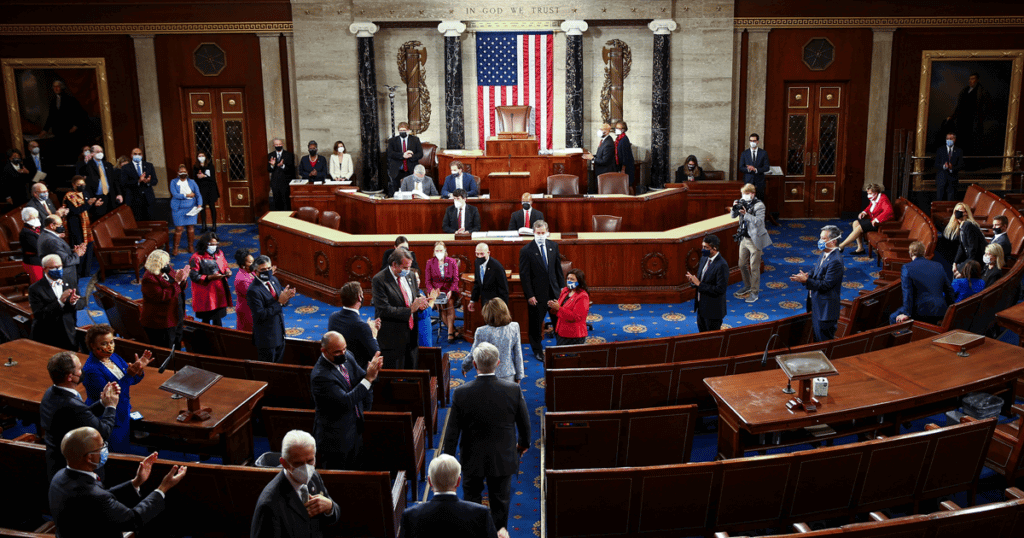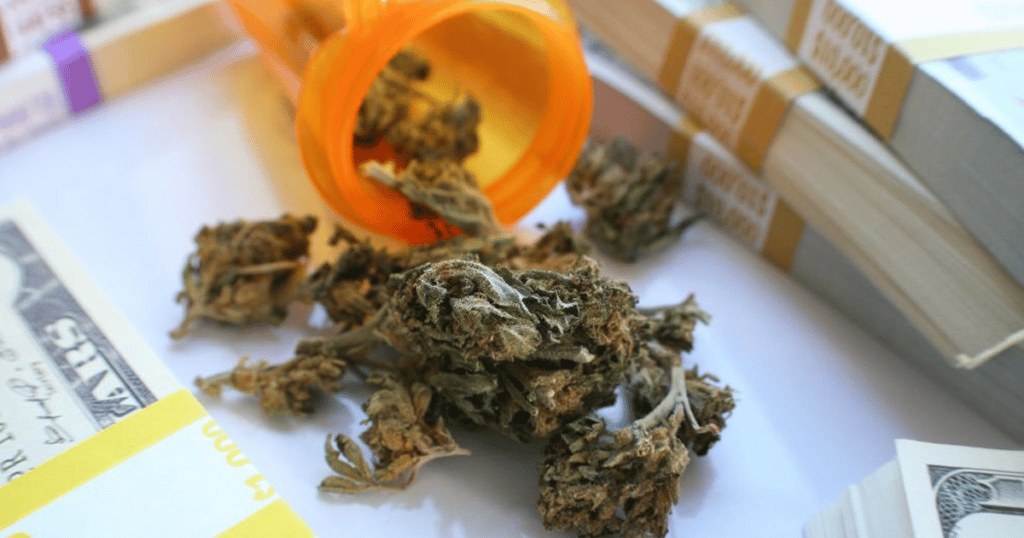The SAFE Banking Act is proposed legislation regarding the disposition of funds gained through the cannabis industry in the United States, making it easier, safer, and cheaper for banks to loan money to cannabis operations. The bill is sponsored by over 180 government actors and has already been passed in the House six times.
The Senate, however, has yet to vote on the SAFE Banking Act or any other marijuana reform measure that would open discussions between the House and the Senate. Bipartisan lawmakers are growing increasingly frustrated by Senate Democrats and their opposition to the bill.
The House’s Approach To Cannabis Reform
The Senate’s current leadership has insisted that comprehensive legalization bills be passed before the cannabis banking measure, which has resulted in significant delays and irritated House members.
“The frustration’s been there for a long time. They’ve got to figure out what it is they want and they can pass. Those two things aren’t necessarily the same thing, so they’ve just got to talk among themselves – Democrats and Republicans – over there,” U.S. Rep. Ed Perlmutter (CO-D) told MJBizDaily.
Perlmutter and the House have attempted to lead the Senate to a solution, incorporating a two-pronged approach. In addition to the SAFE Banking Act, Perlmutter is attempting to change the National Defense Authorization Act (NDAA), which the House passed recently, to include the provision enabling cannabis firms to have access to the American banking system. Financial institutions would be free to work with marijuana businesses operating under state legalization thanks to the reform.
The chairman of the Senate Banking Committee, however, claims that U.S. Senate Majority Leader Chuck Schumer has tied his hands. Chuck Schumer in the past has promised to introduce a comprehensive cannabis reform bill. The long-promised and endlessly postponed plan is anticipated to incorporate elements of criminal justice, such as the expungement of prior cannabis convictions. However, there is no sign of it moving forward.
The House has been patient with the Senate all year, but with the November elections rapidly approaching, frustrations are high and pressure is mounting.
“They’ve got a standalone bill in the (Senate) Banking Committee right now. That may end up being the center for a broader – but not as broad as what they’ve been talking about – bill,” Perlmutter continued.
“The next step is to keep it on the NDAA…They [the Senate] can start amending things onto it … or they can start something new and send it back to us. But they’ve got to start moving,” Perlmutter says.
“They’ll have at least two vehicles to work with: the NDAA or the standalone (SAFE Banking Act) to see what they can get. Because I’m pretty sure in the House, whatever they can do, we certainly can do.”

What The Senate Wants
The SAFE Banking Act this year has a record-high co-sponsorship from nine Senate Republicans.
State, local, and community banks are currently lobbying lawmakers for the proposal nationwide, and several skeptical Democrats presume to know why so many of their Republican counterparts are involved.
“The banks have a lot of influence with Republicans. I’ll just leave it at that,” Brown said.
The red line that Brown and Senate Democratic leaders set in the sand at the beginning of this Congress has not changed, and Brown continued, “If the people demanding SAFE Banking want that bill, they’ve got to come to terms with the sentencing reform…. I can’t speak for Schumer, but it’s been his line. It’s been my line from the word go.”
Brown added, even though he maintains the House-passed SAFE Banking Act is still insufficient, he doesn’t understand why negotiations can’t begin taking place.
The issue for Schumer and Brown is that many Senate Democrats, especially those who represent states where marijuana usage is legal, want the Senate to simply approve the SAFE Banking Act, which was passed by the House. Schumer, Brown, and many other Senate Democrats, however, want a full criminal justice reform bill passed in its stead, and are hoping to fully legalize cannabis. For the Republicans sponsoring the SAFE Banking Act, however, this is not an option.
While House Democrats claim their first work on the SAFE Banking Act is complete and that sentencing reform should be discussed separately, Senate Democrats insist that the package include the erasure of prior cannabis convictions.
California Democrat Barbara Lee, a U.S. Representative and co-chair of the Cannabis Caucus, said that she and her colleagues are awaiting Senate action.
She stated that if the Senate enacted its own version of the SAFE Banking Act and the two sides started negotiations in a conference committee, House Democrats would be willing to support the criminal justice elements
“If we go to conference, I’m sure we would try,” Lee said. But, she added, “We can’t go to conference yet, so they’ve got to pass something.”

The clock is ticking on cannabis reform. With the November elections rapidly approaching, House Democrats are concerned that a Republican majority will bury any bill that is even remotely pro-cannabis. Senate Democrats share this concern, but Schumer and others in his camp refuse to budge, opting instead to demand criminal justice reform and marijuana arrest expungement nationwide.
Not only is this something that Republicans will never agree to, but it’s an unnecessary point of contention between the House and Senate. If the Senate decides to pass the SAFE Banking Act, the two could go to conference and work on amending the bill to include more Senate-approved measures. The Senate could also draft their own criminal justice bill and pass it themselves instead of demanding the SAFE Banking Act include expungement provisions. The process is being unnecessarily delayed, and with November approaching and an expected GOP majority to result from the votes, it seems the future of cannabis in this country is dark.
Enjoyed that first hit? Come chill with us every week at the Friday Sesh for a freshly packed bowl of the week’s best cannabis news!

















